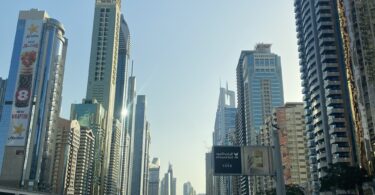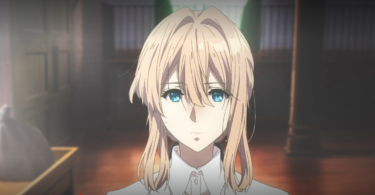Baden Baden, GERMANY – When I was 10 years old and scrolling through YouTube, I discovered something that would change my life forever. A song contest that involved different European countries – and some countries outside Europe, as I would find out later – with artists I never heard of, who spoke languages different from mine.
Listen to the author read this article:
But something about this intrigued me. Learning about different cultures has always been a hobby of mine, and Eurovision seemed to be the perfect way to pursue this hobby.
Fast forward to 2025 and I’m not 10 years old anymore, listening to Eurovision songs in my room. I’m 17 and an accredited journalist for the Eurovision Song Contest 2025, my first one ever in person.
Let me take you through this magical week filled with love, happiness and most importantly, with music.

The host city, Basel, is a cozy city with almost 200,000 inhabitants. It’s located in Switzerland, directly at the German and French border. As I live in southern Germany, I could reach Basel in two hours with regular train service.
The whole city was gearing up for the week, offering many side events apart from the big show.
In the House of Helvetia, I attended a meet and greet event hosted by Wiwibloggs, the biggest Eurovision fan blog. There, I met many artists from this year’s competition, including some of my favorites, like Austria’s JJ or Albania’s Shkodra Elektronike.
I even had the opportunity to ask a question of Marko Bošnjak, the Croatian representative, who spoke about his view concerning the fact that the European Broadcasting Union recently banned the display of queer flags by artists during live shows.
A highlight was the Turquoise Carpet, which marks the official beginning of Eurovision Week. This year, it was held on May 11 and included all the artists, who, similar to a red carpet event, wore special pieces of clothing, mostly designed by people from their respective home countries.
This was a beautiful event, but at times, the atmosphere was tense. During the event, which was crowded, activists waved Palestinian flags, chanting “Free Palestine” or “Boycott Israel.” The protesters objected to the fact that Israel and its broadcaster, KAN, was part of the contest.
Right after the Turquoise Carpet, there was a media event where journalists could interview and photograph participants. This was a stressful experience as there wasn’t a lot of time per artist to interview them and a lot of journalists wanted interviews. This was the first Eurovision event where I encountered journalists and content creators at work, and it taught me a lot about how to prepare for press events like this one.

Even though I wasn’t able to ask questions of artists during the event, I created a lot of video footage used by Youth Journalism International’s Social Media Team, especially Samantha Esquivel, who is the social media video editor.
I also wrote many articles focusing on how Basel was preparing for the event, about Gen Z performers and JJ, the Austrian singer who won the contest.
Although I was an accredited journalist, I tried to not only concentrate on that, but also to connect with other Eurovision fans and enjoy the event. One amazing experience I’ll never forget is singing karaoke to “Europapa,” the disqualified Dutch entry of last year, with a fellow Eurovision fan. For me, this sums up what Eurovision really is about – coming together with other fans and dancing and singing with them.
My favorite moment, however, was on the final day in the arena where most of the public was watching the contest. Before the show started, former Eurovision artists from the past performed live on stage, including some of my favorites like Kate Ryan, who performed “Je T’adore,” her 2006 Belgian entry, in front of 36,000 fans.
Also, DJ Antoine performed some of his world-famous songs, like “Welcome to St. Tropez” or “Ma Chérie.”
Then, the show began. I was standing at the barricade, dancing and singing for four hours with the Spanish Eurovision fans next to me. Although we weren’t at the main event, we still loved the atmosphere and had an amazing time.
The voting sequence had us all holding each other’s hands as all of us were afraid of the results. Then when Austria won, the tension broke and everyone was hugging and shouting out of happiness.
After the voting, I had to leave the arena immediately since the winner’s conference was at the media center in a couple of minutes. By this time it was already 1 a.m.
Filled with adrenaline and not having access to Google Maps, I almost didn’t find the main venue. Somehow, I managed to find it in time and even asked JJ a question about how young artists coped with major events like Eurovision.
If half a year ago, someone told me that I’d be able to do all this, I would have laughed in their face. But this dream – not only attending Eurovision but getting to cover it as a journalist – came true.
With more reporting experience by next year, I hope to have the opportunity to cover Eurovision again when the contest takes place in Austria.
Florian Gashi is a Junior Reporter with Youth Journalism International.



